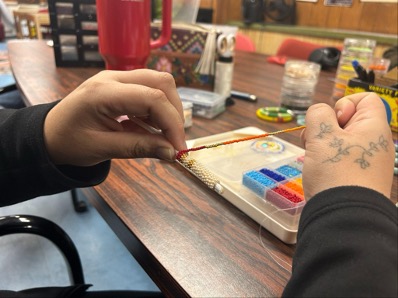Women make up 50 percent of the population in the United States. Half of our population is still yet to be heard, acknowledged and included in the healthcare system. The historical bias against women continues to circulate in our society and invades our healthcare system, drastically impacting women’s lives.
It wasn’t until 1993 that women were included in clinical trials. If women aren’t included in research, it is near impossible to ensure accurate care and treatment.
There is a significant difference in the anatomy and physiology of men and women, making treatment, outcomes and general healthcare advice differ between the sexes. This inequality has a devastating impact on women, resulting in misdiagnoses, deaths and a complete lack of awareness about women and their healthcare needs. A Science Direct study stated that “males and females differ not only in obvious biological aspects but also in brain activity, sex-specific cognitive and behavioral styles, and also susceptibility to illness and disorders.” If healthcare providers continue to treat women as they do men, our lives will continue to be at risk.
Women already experience oppression in healthcare. Whether it’s basic wellness checks or more serious illnesses, we’re constantly fighting just to be listened to. With continually having our pain denounced to “hormones” or “just being a woman,” change is needed, and it should begin with women being included in research.
Women experiencing symptoms that differ from the standard presentation for illnesses such as heart attacks are often misdiagnosed. The New England Journal of Medicine found that “women are seven times more likely to be misdiagnosed and discharged mid-heart-attack.” This terrifying statistic proves the need for equal research and equal acknowledgment of women’s symptoms as compared to men. It was found that only “one in eight female heart-attack patients report feeling chest pain, the classic warning sign in men,” emphasizing the difference in how our bodies present in dangerous, life-altering conditions.
For our health, especially with heart attacks or heart disease, time is of the essence and the fight to be heard is an unnecessary battle. The way to resolve this issue is through women-specific research. Inherent bias notwithstanding, healthcare providers would be quicker to believe women if there was research to back up their symptoms.
There is still a lack of funding and research to fully understand the complexities of the female anatomy, and to treat the pain that millions of women experience, especially with conditions specific to women and their reproductive system. A PubMed study revealed that the “number of research articles published on non-reproductive organs is 4.5 times higher than the number published on reproductive organs.” This disparity results in women being left without real answers or effective treatments, especially for conditions that cause significant pain, for example, endometriosis.
This is especially true for women of color, who are also experience racial bias in the healthcare system. PubMed found that in “women enrolled in global cardiovascular drug trials, only 3.2% were Black or African American.” Underrepresentation in healthcare can only lead to more harm.
The lack of prioritization in funding and research directly impacts the quality of care women receive, contributing to the ongoing cycle of neglect in women’s health. World Health found that “less than 2% of medical research funding is spent on pregnancy, childbirth, and female reproductive health.” This gap in understanding leads to countless women feeling dismissed, with their voices unheard, as they seek solutions to real health issues that continue to be marginalized.
While the government likely views prioritizing women’s healthcare as just an option, it is not. It is a necessity. It is our right to have the same treatments, facilities and options as the rest of the population. The neglect of women’s health contributes to decisions like the overturning of Roe v. Wade, meaning women who are already struggling with pain and uncertainty now face an additional loss of autonomy over their own bodies.
The legal control over funding and research proves these biases, funneling money into research for already well-known and well-researched conditions geared towards the male anatomy. It isn’t just a lack of resources – it’s a lack of acknowledgment.
This systemic bias is not something to be taken lightly, as women’s lives depend on it. To save lives and improve the daily experience of millions of women, medical research must start with an equal acknowledgment of women’s pain and experiences.
If healthcare providers aren’t acknowledging your pain, it’s more important than ever to advocate for yourself and get educated on your health. True change will only begin with acknowledgment and inclusion.
Julia Bragg can be reached at j[email protected]



















